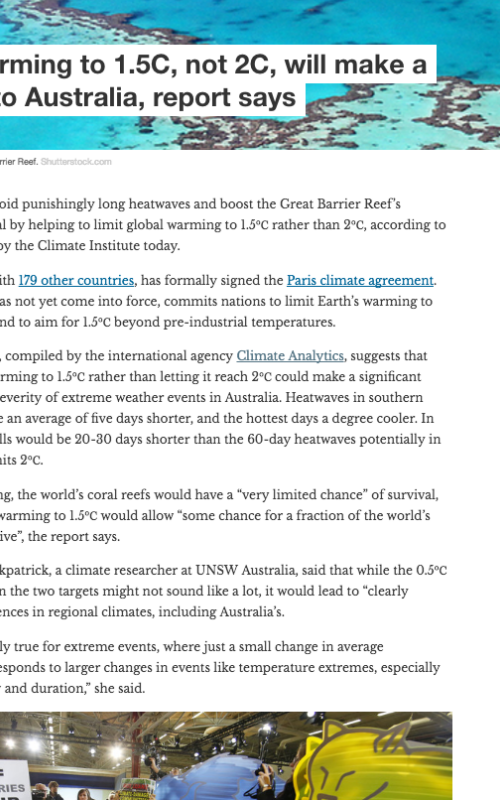Media coverage
Share

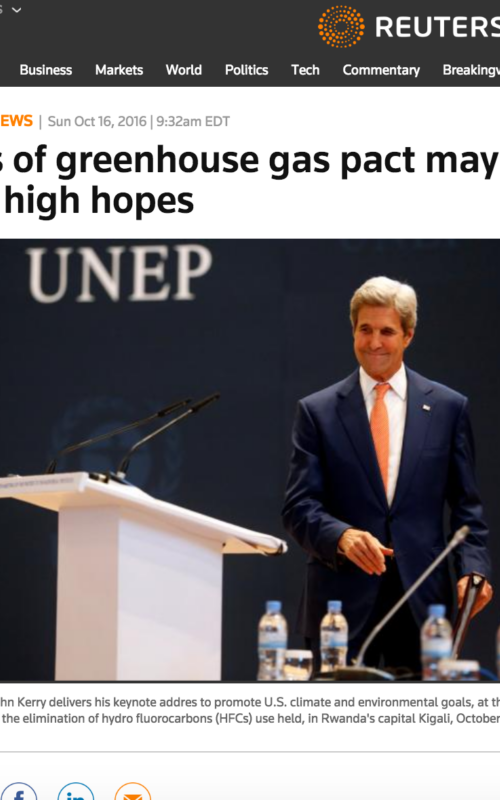
A pact by almost 200 nations to slash greenhouse gases used in refrigerators and air conditioners will likely fall short of governments' hopes of averting a full half-degree Celsius (0.9 Fahrenheit) of warming this century, scientists say. Michiel Schaeffer of Climate Analytics estimates "around 0.2 degree Celsius (0.36F) by 2100" of avoided warming.
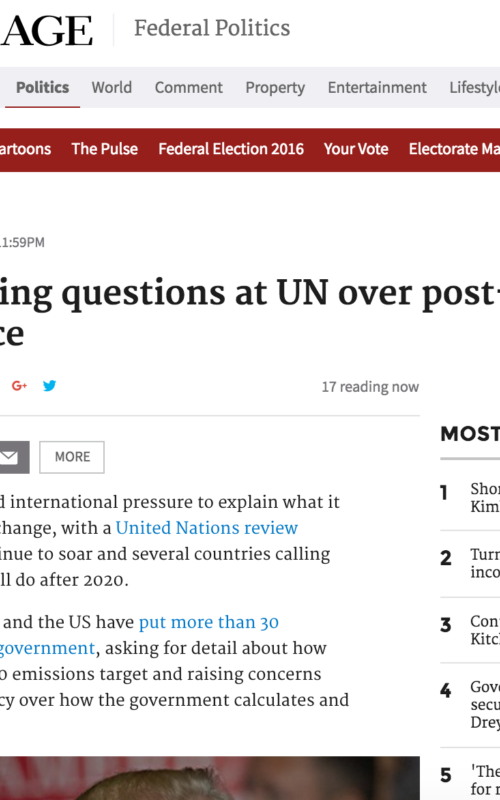
The Age
Australia is facing renewed international pressure to explain what it is doing to tackle climate change, with a United Nations review finding its emissions continue to soar and several countries calling for clarity about what it will do after 2020. Climate Analytics CEO Bill Hare says questions asked of Australia showed deep scepticism and frustration beneath a diplomatic veneer.
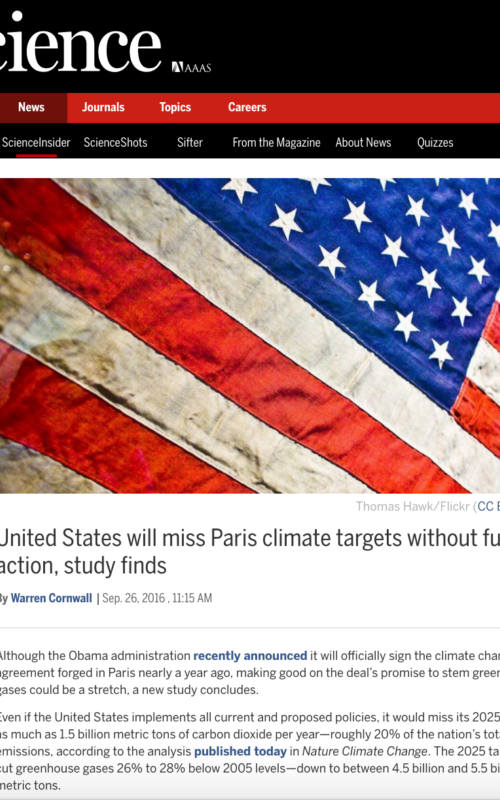
Science
Even if the United States implements all current and proposed policies, it would miss its 2025 target by as much as 1.5 billion metric tons of carbon dioxide per year—roughly 20% of the nation’s total emissions, according to the analysis published today in Nature Climate Change.
Although the U.S. path to meeting its promises is uncertain, it has made further progress than some other countries, says Bill Hare, a climate scientist and CEO of Climate Analytics.
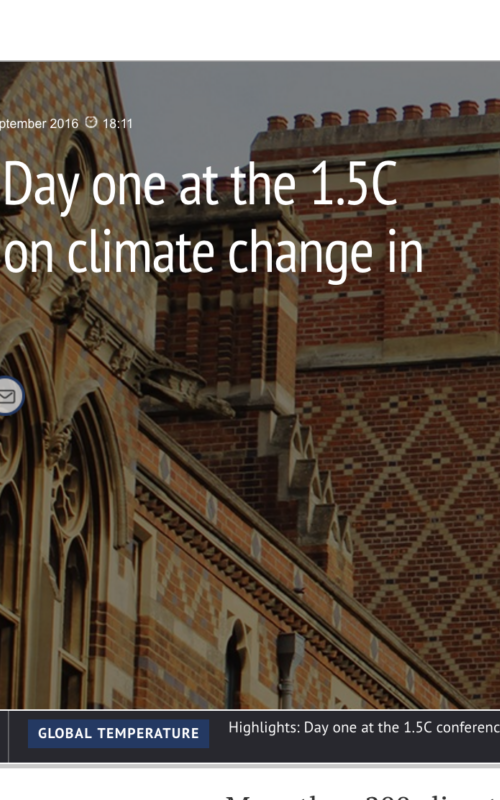
Carbon Brief
The Carbon Brief summary of the first day of the 1.5°C conference in Oxford, focusing on what evidence the scientific community will need to produce to feed into a special report on 1.5C, requested by the United Nations after Paris and due for publication in 2018. Climate Analytics' Carl Schleussner presented work on the differences in climate impacts between 1.5°C and 2°C levels of warming.
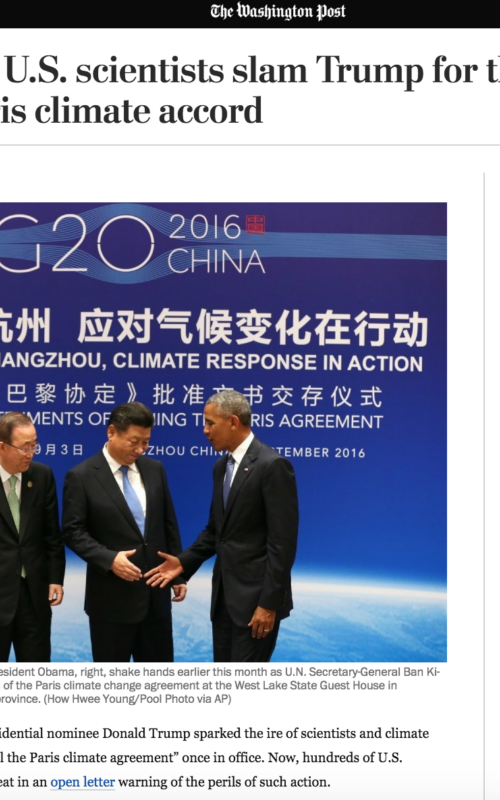
The Washington Post
375 U.S. scientists have addressed the perils of the presidential nominee's threat to 'cancel the Paris Agreement' in an open letter published during the Climate Week in New York. This article also outlines some of the contents of the Climate Analytics' Climate Week event.
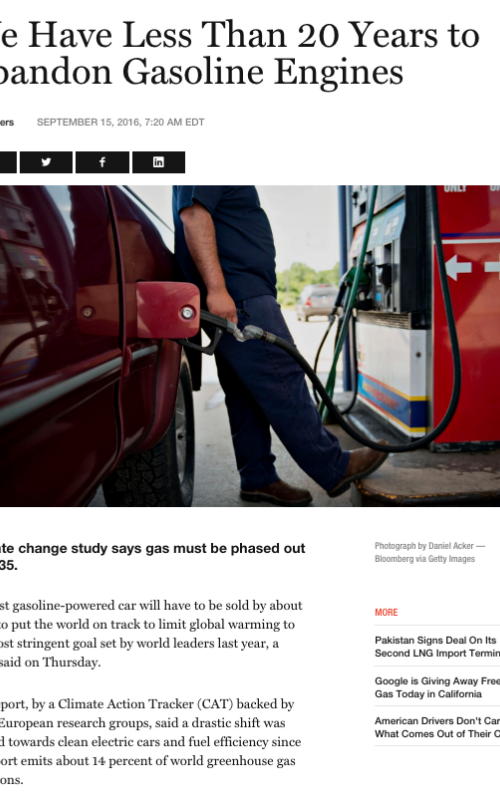
Fortune
The last gasoline-powered car will have to be sold by about 2035 to put the world on track to limit global warming to the most stringent goal set by world leaders last year, according to a Climate Action Tracker report.
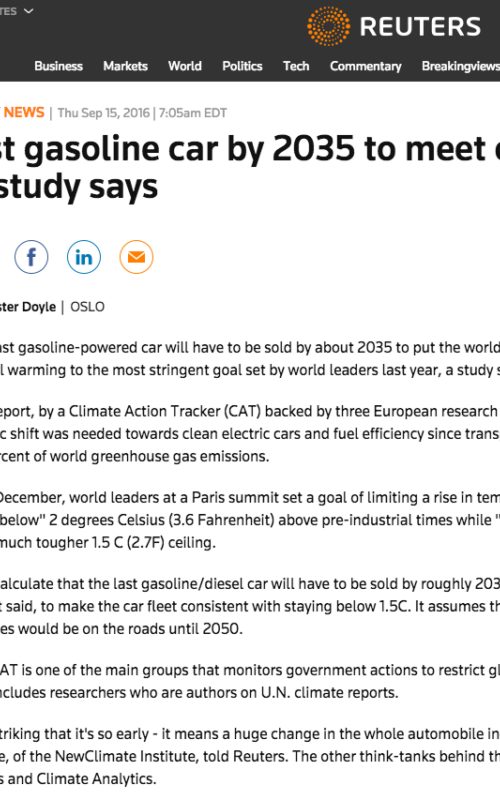
Reuters
The last gasoline-powered car will have to be sold by about 2035 to put the world on track to limit global warming to the most stringent goal set by world leaders last year, according to a new report by a Climate Action Tracker (CAT).
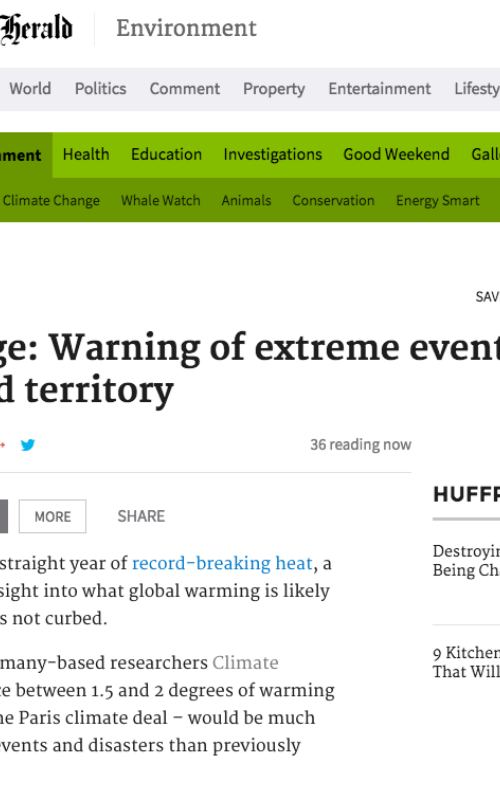
Sydney Morning Herald
As the world endures a third straight year of record-breaking heat, a new study has given fresh insight into what global warming is likely to mean for Australians if it is not curbed. Researchers at Climate Analytics found the difference between 1.5 and 2 degrees of warming – the two goals included in the Paris climate deal – would be much greater in terms of extreme events and disasters than previously believed.
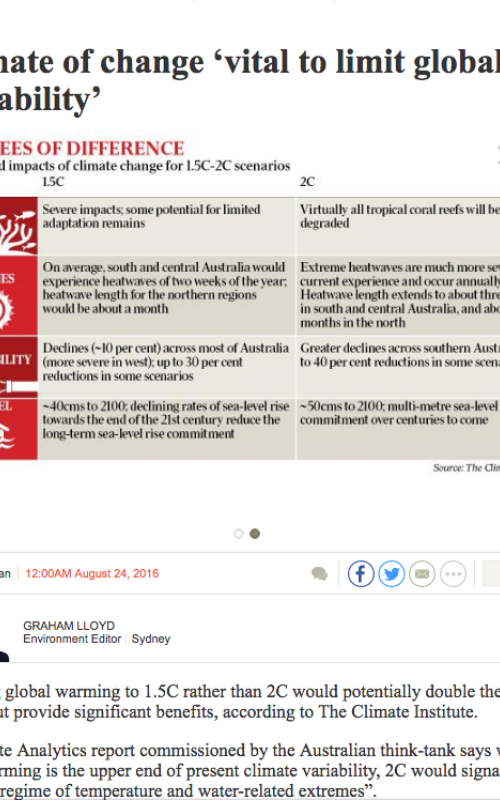
The Australian
Limiting global warming to 1.5C rather than 2C would potentially double the cost of action but provide significant benefits, according to The Climate Institute. A Climate Analytics report commissioned by the Australian think-tank says where 1.5C warming is the upper end of present climate variability, 2C would signal “a new climatic regime of temperature and water-related extremes”.
